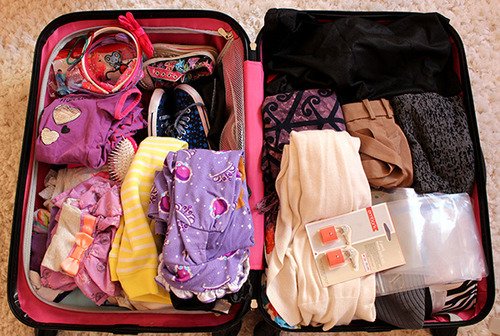Heading off to university is an exciting milestone. It’s a time for new adventures, new friends, and a fresh start. But before you can dive into all that, you’ve got to pack. Whether it’s your first year or you’re returning for another, figuring out what to bring and how to prepare can seem overwhelming. The reality is, packing for university isn’t as complicated as it might seem, but there are definitely some essentials and strategies that can help make the whole process easier and more efficient. From knowing what to bring to how to organize your things, this guide will walk you through the process of packing for university step by step.

Step 1: Understand What’s Already Provided
Before you even begin packing, the first step is to check what your accommodation provides. Every university is different, so it’s essential to know exactly what is included in your student housing. For example, some universities provide bedding (pillows, sheets, duvets), while others don’t. Likewise, certain halls may have kitchen essentials like a microwave, fridge, and toaster, while others leave you to provide these items yourself.
If you’re staying in catered halls, where meals are provided, the list of things you’ll need to pack is generally smaller. However, if you’re in self-catered halls, you’ll need to bring your own kitchenware, such as plates, cutlery, pots, and pans.
Be sure to review the university’s list of provided items for your accommodation. This can help you avoid overpacking and make sure you’re not bringing items you won’t need, like a set of kitchen utensils if your hall provides them. This will save you space and energy when you’re moving in.
Step 2: Make a Packing List

Now that you know what’s already provided, it’s time to make a packing list. A well-organized list will help you stay on track and ensure you don’t forget anything important. The key is to break it down into categories to make it more manageable. Here’s a breakdown of essential categories to consider:
Bedroom Essentials
Your bedroom is where you’ll spend a lot of time, so making it feel comfortable is crucial. Depending on what your accommodation provides, you may need to bring your own bedding. Items like a duvet, pillows, and bed sheets are essential if they aren’t already included.
Along with bedding, don’t forget towels (bath and hand towels), a laundry basket, and storage solutions. If you’re bringing clothes that need hanging, packing a few hangers is a good idea. Many students also bring personal items to make the room feel more like home, such as photos, decorations, and even fairy lights. Having a few homey touches will make your room more welcoming.
Kitchenware
If you’re in self-catered accommodation, the kitchen will be one of the most important areas to focus on. Depending on what’s provided, you may need to bring a variety of kitchen items. The essentials include:
- Cooking utensils: spoons, spatulas, knives, and a can opener.
- Pots and pans: a frying pan, a saucepan, and perhaps a larger pot for cooking pasta or stews.
- Plates and bowls: don’t forget cups, mugs, and glasses.
- Cutlery: knives, forks, spoons, and cooking tools.
- Storage containers: for leftovers or bringing food to campus.
Also, remember to pack basic cleaning supplies like a sponge, dish soap, and a drying cloth. If your halls don’t provide these things, you’ll want to make sure you have them in your kitchen area.
Study Supplies
As university is all about studying, you’ll need some key supplies to stay organized and productive. The basics include:
- Notebooks: Whether it’s for lectures, tutorials, or general note-taking, these are essential.
- Pens, pencils, and highlighters: Stock up on stationery that will help you stay organized and keep your notes neat.
- Textbooks: Depending on your course, you may need certain textbooks right away. However, many universities offer discounts on textbooks or have libraries where you can borrow them. Consider waiting to purchase textbooks until after you’ve arrived on campus and have a clearer idea of what’s necessary.
- Laptop or tablet: These are must-have items for writing essays, doing research, and staying in touch with professors and classmates. Don’t forget your chargers!
Miscellaneous Items
These are items that don’t necessarily fit into the other categories but are still important for everyday life. Some common items include:
- Toiletries: Don’t forget your toothpaste, shampoo, conditioner, soap, and other personal hygiene products.
- Electronics: A phone charger, headphones, a power bank, and possibly a desk lamp or a fan (depending on your needs).
- First-aid kit: A small kit with painkillers, plasters, antiseptic, and anything else you might need in an emergency.
- Home comforts: Some people like to bring a few extra comforts from home, such as a favorite blanket, pillow, or stuffed animal, to make their room feel familiar.
Step 3: Avoid Overpacking
It’s easy to think you need to bring everything with you to university, but the reality is, most people overpack. University rooms are often smaller than you expect, and you’ll want to leave room for things you buy while you’re there. You can always swap out your clothes when you go home for breaks, and if you forget something, you can usually buy it once you’re on campus.
Here’s a simple rule: Don’t pack your entire wardrobe. You’ll want to have enough clothes to get you through the first few weeks, but there’s no need to bring everything. Consider the climate and the activities you’ll be doing, and pack accordingly.
As for personal items, only bring things you know you’ll use right away. If you don’t use something regularly, it’s best to leave it behind for now and bring it later if you really need it.
Step 4: Think About How You’ll Get Your Stuff There

Once you’ve made your list and started packing, the next step is figuring out how to transport your things to university. Depending on how far away you live, this might be as simple as driving your things in a car or as complicated as flying and shipping boxes.
If you’re driving, packing your belongings in labeled boxes will make things much easier to unpack. You’ll likely want to bring suitcases for clothes, as they are easier to store. Collapsible boxes are also great for things that need to be packed away when not in use.
If you’re flying, or if you simply have too much to carry, it’s worth looking into shipping options or carpooling with friends or fellow students who are heading to the same university.
Step 5: Unpacking and Setting Up Your Space
Once you arrive at your university, unpacking is the next big step. It’s easy to feel overwhelmed, but start by tackling the essentials. Set up your bed first—this will make your room feel more like home. Once that’s done, begin organizing your kitchenware, study area, and personal items.
Making your space feel personal is key to settling in quickly. Add a few personal touches, like your favorite photos, posters, or any mementos that make you feel comfortable and relaxed.
Step 6: Stock Up for Freshers’ Week
When you first arrive, you’ll be busy with activities and meeting new people. While takeaway food may be tempting, it’s wise to stock up on basic groceries so that you can eat well during Freshers’ Week. Easy-to-make items like pasta, pasta sauce, snacks, and fresh fruit and vegetables will keep you going in the first few days.
Conclusion
Packing for university doesn’t need to be stressful, but it does require some planning and organization. By understanding what’s provided, making a detailed packing list, avoiding overpacking, and organizing your belongings efficiently, you’ll be well on your way to starting university without any stress. Most importantly, remember that university life is about new experiences and adventures, and packing should be the easy part. Enjoy the journey and embrace the change—it’s going to be an exciting time!

